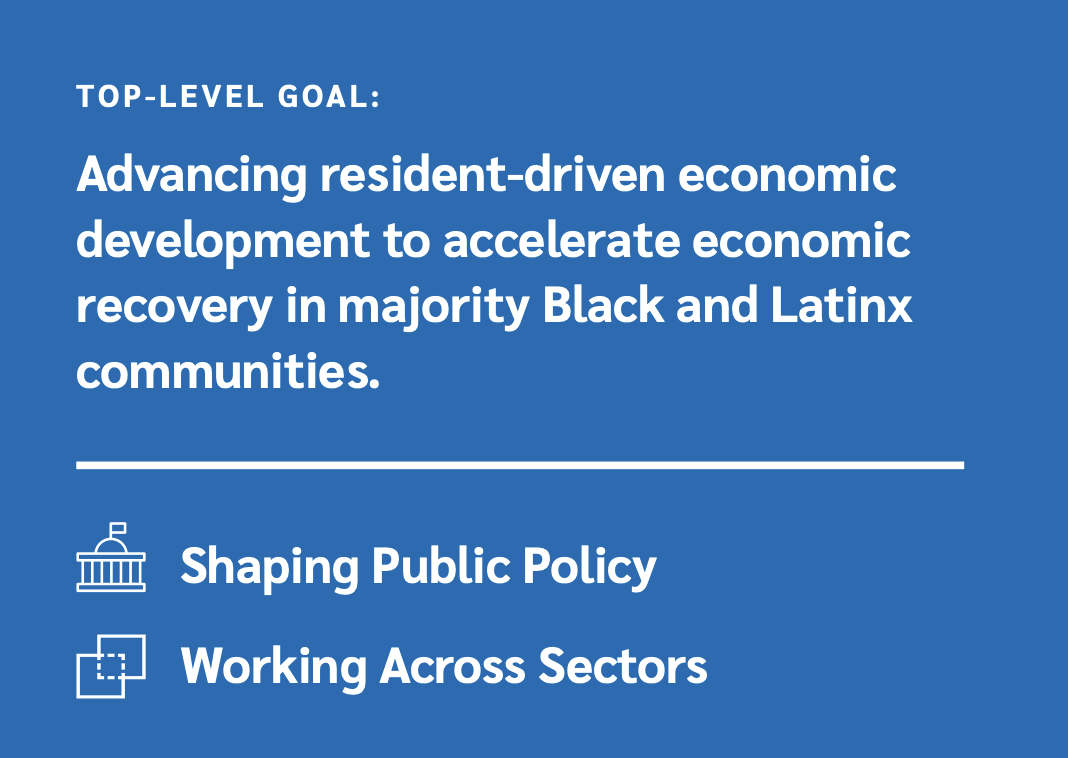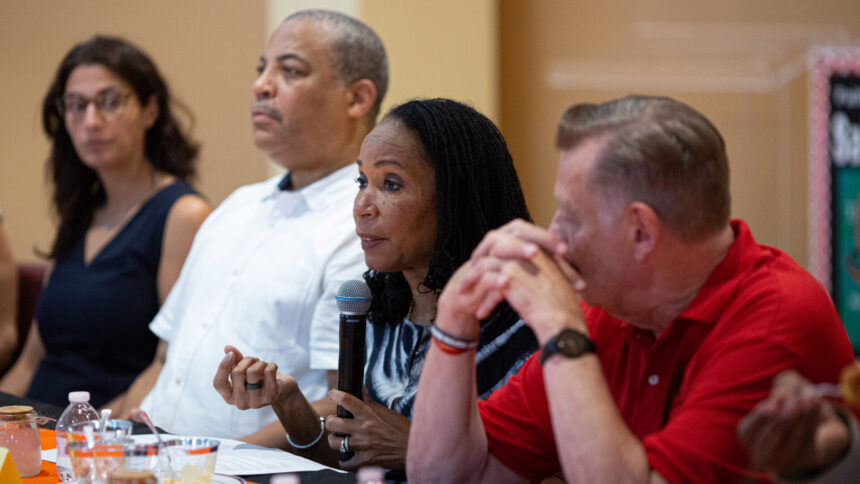We’re sharing community foundation stories from our recently published report, Advancing Economic Mobility in our Communities, which documents the outcomes of these community foundations that came together to develop economic mobility agendas for their communities.
The Chicago Community Trust

Community conversations and levers of change
Community engagement has been central to We Rise Together: For an Equitable & Just Recovery, a multi-sector funding collaborative The Chicago Community Trust launched in late 2020 to complement and advance economic mobility partnerships and strategies in the Chicago region.
The Trust used information and resources provided through the Economic Mobility Action Network to help it steer new support to the Black and Latinx communities that were hit hardest by the job and business losses of the COVID-19 pandemic.
To involve residents in shaping We Rise Together, the Trust interviewed 15 community leaders, surveyed residents and businesses, ran focus groups and commissioned the nonprofit BECOME to conduct nine community conversations. These efforts refined the model for We Rise Together, focusing on hyper-local challenges as well as systems issues such as permitting delays, inflation costs and access to capital.
Three levers of change — philanthropy, business practices, and public policy and practices — will help drive neighborhood investment, strengthen Black and Latinx businesses, and increase quality, resilient employment in the Chicago region.
Everybody needs to thrive and that means that we have to continue to invest, making sure that everybody has access to those resources, that every kid can walk down a street safely, that everyone has access to education and health care. So when we think about economic recovery and economic well-being, we think about what does it look like for the whole being to thrive.
Creating alignment to target investments
We Rise Together convened partners and resources from area businesses, nonprofits, local governments and philanthropies for its coordinated effort. A steering committee representing the multiple partners used economic and demographic data, with resident input, to target place-based investments to the majority Black and Latinx neighborhoods most affected by historic disinvestment along with the COVID-19 pandemic.
We Rise Together and the Metropolitan Planning Council co-organized cross-sector working groups to clarify the challenges and elements of success in local projects and to highlight improvements in public policy that can help the projects succeed such as speeding up permitting. “We are intentionally creating alignment with federal, state and local funding in communities to address barriers and unlock capital,” the Trust reported, through “co-funding efforts, linking projects to other funders including the Chicago Prize, funding in partnership with Invest South/West investments and Community Recovery grant recipients.”
To challenge “business as usual” practices, We Rise Together works with the Corporate Coalition of Chicago to hold each other accountable to do more to change the culture of doing business in Chicago, intentionally embedding the Deputy Mayor and the Cook County Chief of Economic Development on the steering committee. The City of Chicago’s Chief Equity Officer served on the Trust’s Economic Mobility Action Network planning team.
In addition, the Network’s introduction of the U.N. Sustainable Development Goals and support from Tony Pipa led the Trust to participate in a new project, funded by the C.S. Mott Foundation, which explores how its assets under management can be aligned to support the SDGs.
Measuring outcomes and reporting impacts
We Rise Together continues to work on improving its measures of outcomes and on reporting the positive impacts — both as relatable data and through narrative storytelling — to the targeted neighborhoods.
The Trust describes its Network experience as transformational, and not only because it helped shape and refine We Rise Together. “We have developed new partnerships with other community foundation colleagues across the country, we expanded our own economic mobility knowledge through peer and facilitated learning, and we have considered new and innovative approaches led by community foundation colleagues to address racial equity. ”
“Our ongoing participation in the Network has allowed for dedicated time as a team to pause, reflect, connect, plan and execute on a shared economic mobility agenda that could not have been more timely.”
Contact
If you have any questions about the Economic Mobility Action Network or if you are interested in participating in a future cohort, please contact Leonard Brock at lbrock@cfleads.org or 617-854-3549.




